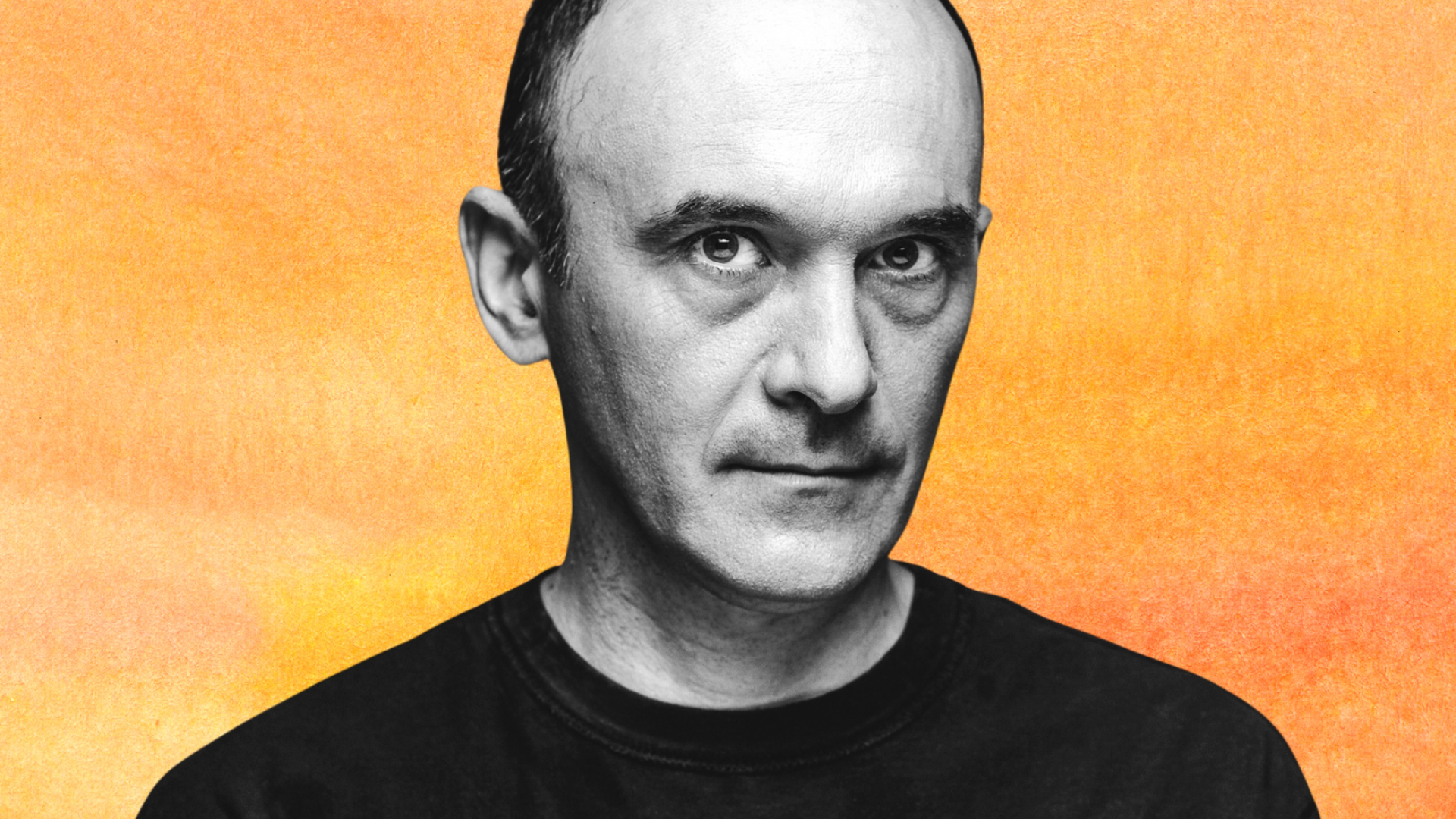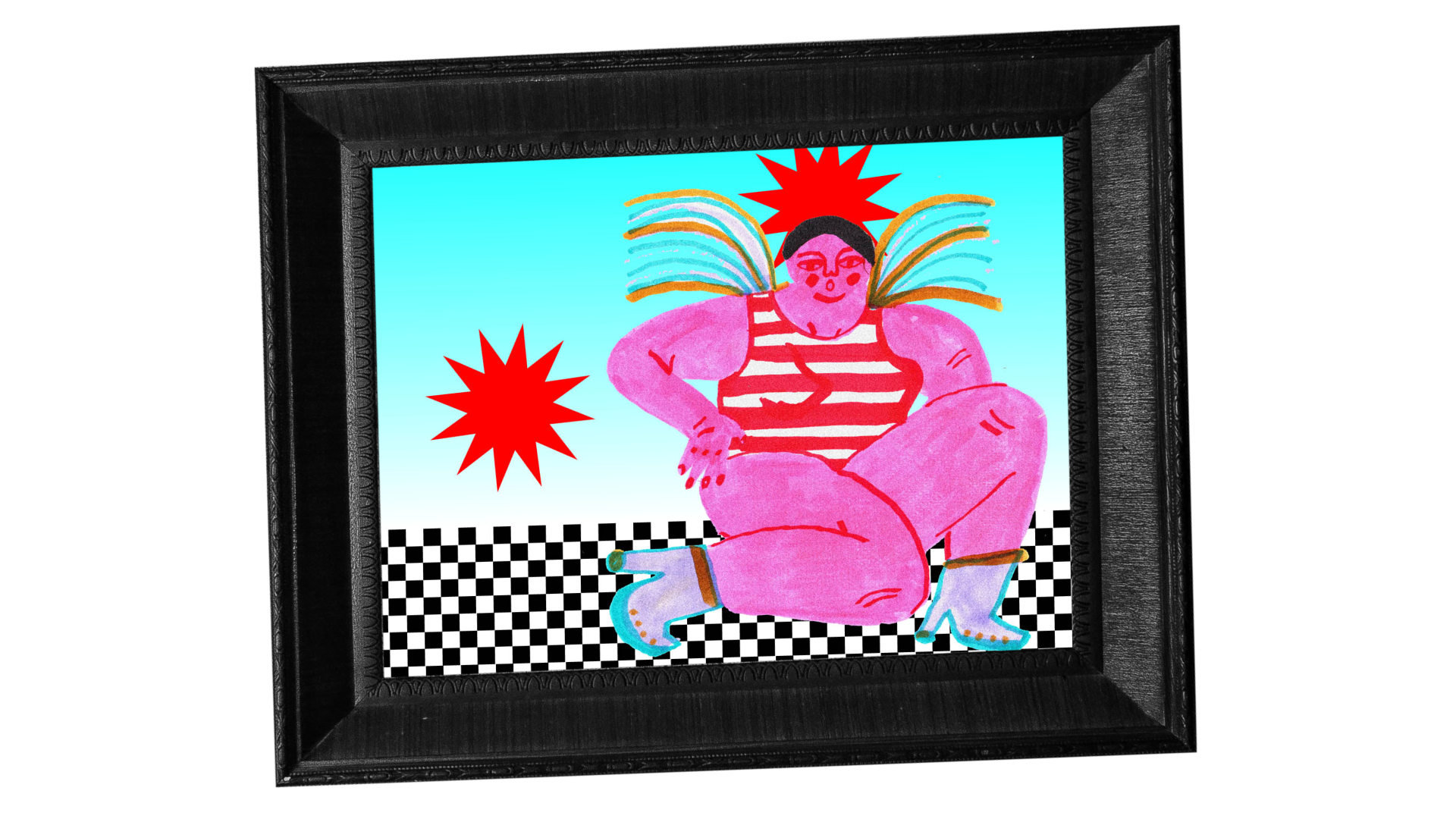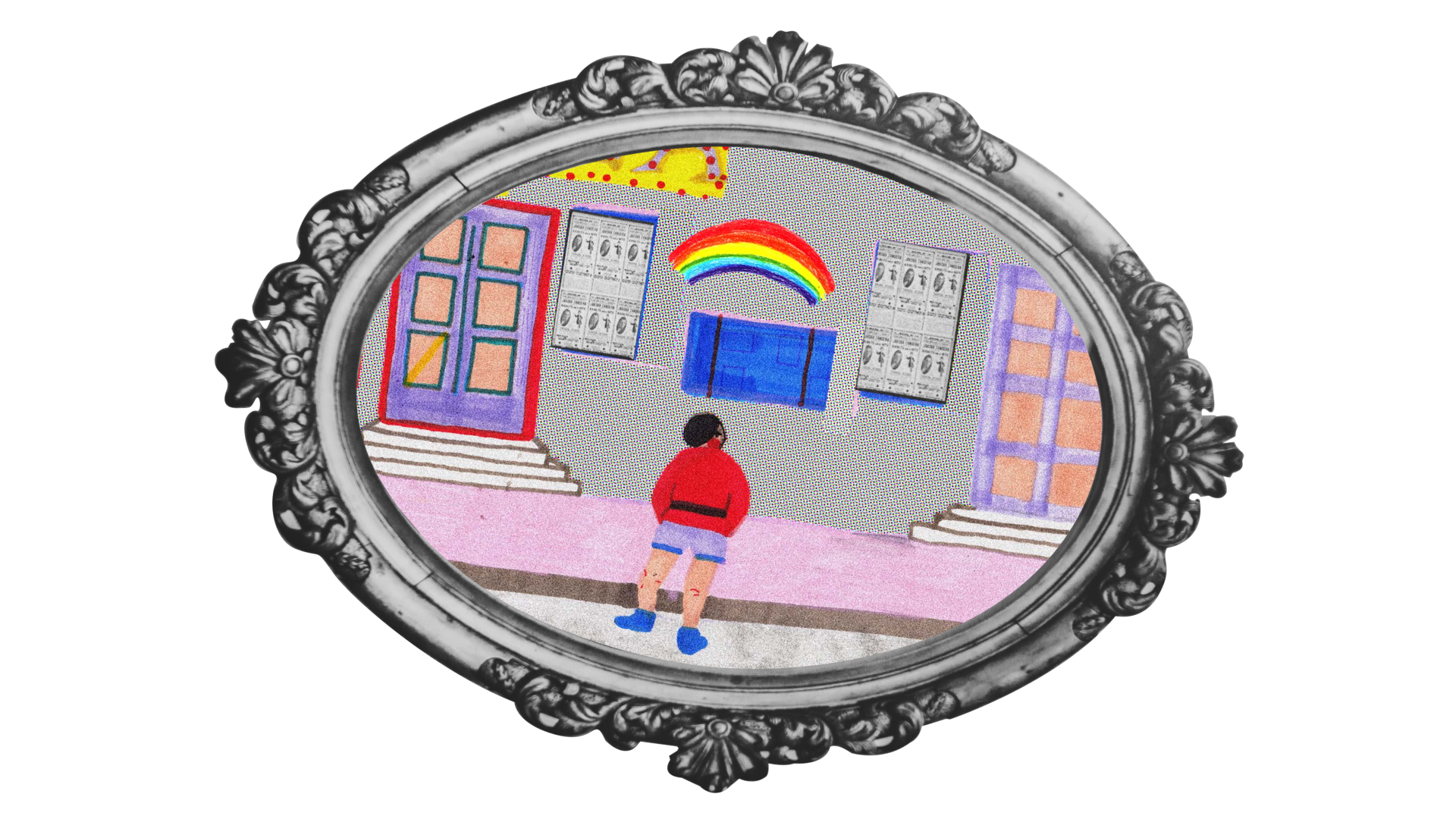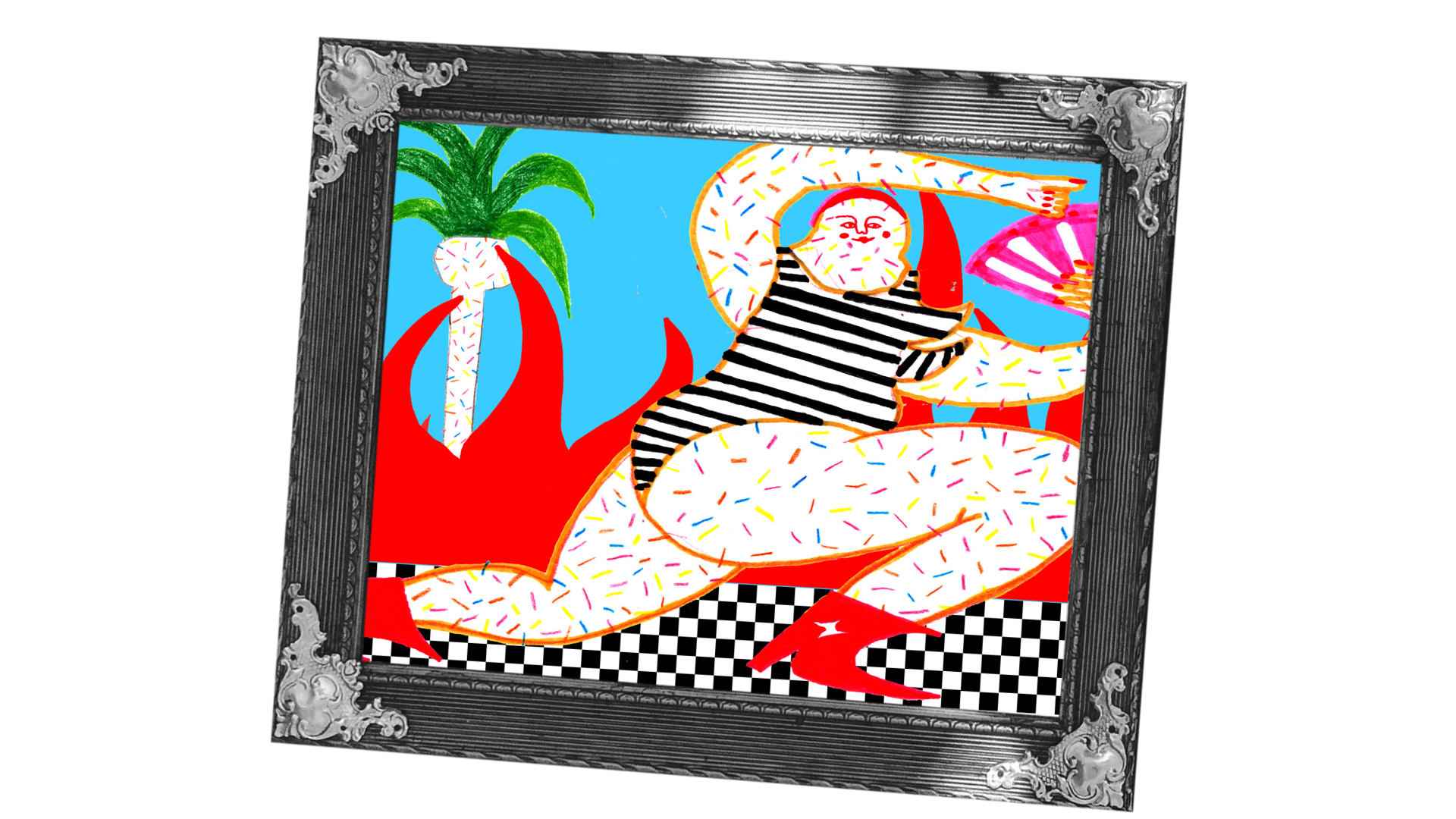When Humans Hallucinate

“I always felt that I did not belong, even as a kid,” says acclaimed American theater director, dramaturg, and festival producer Paul Bargetto. “I couldn’t articulate why. I just felt like I was always somehow an outsider.”
Paul’s diverse and provocative body of work to date, which spans choreography, conceptual works, documentary research, teaching, and arts activism, occupies a unique realm between physical performance and the abstract territories of metaphor and poetry. His career is defined by pushing beyond conventional theatrical boundaries to explore language, meaning, dreams, and the darker side of humanity—often with a comic twist.
Though born and raised in California, Paul cut his teeth in New York City where he founded the theater company East River Commedia (1998–2010) and undergroundzero, a festival of experimental independent live arts (2007–2014). He moved to Warsaw several years ago where he currently serves as artistic director of Teatr Trans-Atlantyk, a documentary theater ensemble that creates original works of devised theater in collaboration with other dramatists, artists, and experts from other disciplines and fields, and Eldorado Teatr, an international digital live arts platform.
It was in Warsaw, at our 2019 Chamber of Beautiful Business, a community-run gathering, where we first collaborated with Paul; he came to talk about his groundbreaking—and heartbreaking—documentary theater project Album Karla Höckera, based on an album of personal photographs taken at the Auschwitz concentration camp in 1944 by SS officer Karl Höcker.
Paul and his ensemble will join us again at The___Dream, our upcoming festival in Sintra, Portugal from June 2–5, to present a site-specific work called Invisible Bridges – A Collective Waking Dream, a performative installation with Ukrainian and Polish artists.
The interview below has been edited for clarity and length.

Image credit: Eldorado Teatr
—How important are dreams to your work?
I would say that dreams have always been behind the logic that has driven my work.
“The world that I personally hope to see when I go to the theater is one that I’ve never seen.”
I don’t want to see my own world reflected back to me, which I know is what many people want, or at least something that approximates their world. But I prefer to go somewhere where I don’t know where I am but that has a logic and coherence that I can understand if I’m strong enough to sit through it.
I’ve worked a lot making plays in languages that I don’t speak. I’ve realized that when the words are not at the front of your brain and are replaced with sounds and music and other things, the rest of the storytelling becomes a lot easier to see. It seems I was always more interested in what’s under the words, and working with dance and foreign languages helps that. Even though I live in Warsaw, I still don’t really speak Polish so I am in this kind of halfway zone where I know a lot of what is being said but I also miss a lot. I like the process of sorting it out, stopping a rehearsal, and asking the actor: “What exactly do you mean by that?” And then you start to unpack the language. It’s interesting for the actors as well because they will often say that they never thought of a certain word or expression that way. It becomes a very interesting game.
—Do you personally dream a lot?
When I was younger I had a period where I had some typical recurring nightmares, one of which was the classic theater dream where you’re in a play and you don’t know the text and don’t even know what the play is but you have to go on stage and do it. You’re grasping, trying to remember what is what, and then of course, you inevitably end up naked or in your underwear to complete the primal terror, failure, and humiliation. Other dreams involved being chased by animals or monsters.
But I also learned how it’s possible to control your dreams, this lucid dreaming trick where before you go to sleep, you stare at your hands and repeat this kind of mantra that you are dreaming, dreaming, dreaming, dreaming. Then you go to sleep and eventually, you remember to look at your hands in your dream, which is when you realize that you are actually dreaming. Typically, you wake up in that moment and the dream dissipates but if you train yourself you can stay in the dream state and control the dream.
“You can order the animals or devils that are pursuing you to leave, and they do.”
You can make the night into day, you can perform a whole play through improvisation alone; you can leap over the mountain. I suppose that’s a good metaphor for directing and the work of the imagination.

Image credit: Eldorado Teatr
—Will the rise of generative AI change our perception of dreams? And if machines “hallucinate,” which dreams and hallucinations will remain the exclusive domain of humans?
What is fascinating to me is how much of the thinking about the rise of generative AI is seen through the filter of earlier artistic imaginings. For example, popular science fiction films like The Matrix and Terminator imagined dystopian and apocalyptic visions of a future run by self-aware machines. Many science fiction writers such as Isaac Asimov, Phillipp K Dick, Stanislaw Lem, and others grappled with these same implications before AI existed, and their fiction has really shaped our contemporary thinking about AI. Do Androids Dream of Electric Sheep? was Phillip K Dick’s question, and it seems like a prophetic one.
“As Yuval Noah Harari put it, ‘We are the animal that believes in fiction.’”
And I think that the reality of AI, and its possibility of becoming a kind of alien life form capable of its own dreams and hallucinations, feels a bit dubious. I watched a great talk by Jaron Lanier the other day that really helped me to understand what Generative AI is, and what it is not (yet). In his view, and mine too, it is not so much a sentient, or possibly sentient technology, but rather a mirror of our own fears, dreams, and imaginations.
—What can the business community learn about collaboration and leadership from the kind of work you do (acting, improvising, directing)?
I have a somewhat unique perspective on how the business community can profit from studying, learning, and even practicing the live arts. I lived and worked in New York City for seventeen years, and in that time I supported myself financially through temping in the corporate world as an executive secretary and office assistant. I worked in many different industries including investment banking, hedge funds, data brokerages, and a very long stretch at a Fortune 500 company.
So I led a kind of dual life—corporate senior management by day and experimental downtown theater by night—and this gave me an insight into how both communities operate and their respective processes of collaboration. Collaboration in the live arts is generally much more egalitarian and cooperative than anything I saw in the corporate world.
“The foundation of making live art is collaboration, and the foundation of collaboration is trust.”
The creative process requires extremely high levels of engagement and risk-taking from all participants and a good director or choreographer is skilled at leading, coordinating, and inspiring the creative input of the team in a process based on trust and respect. They understand (if they are honest) that they are not the source of all the artistic ideas that will emerge even if they have the final decision on what makes it to the stage. And when the piece is finally presented it is the performers that take the first bows and receive the first applause.
Those qualities are often undermined by the office cultures that I witnessed up close in my corporate experience. The rewards in office culture were almost always tilted toward individual achievement rather than team success. Senior executives more often than not got credit for team achievements and good ideas that emerged from lower-level directors. Successful ideas from team members (or especially from peers) were often viewed as personal threats as opposed to collective accomplishments.
Generally speaking, the value system that I saw in New York’s corporate culture was premised on competition, often in extreme ways, and trust in such a culture is a liability, not a virtue.
“I often used to say that while we in the theater community were playing Macbeth, the corporate community was living it.”
So I think there is a lot that the business community could learn about leadership and processes from the live arts, in terms of how to create cultures, processes, and incentives based on trust and cooperation.

Image credit: Eldorado Teatr
—The___Dream speaker David Chalmers claims we are living in a simulation—what does reality mean for you?
I would rather say that we are performing as performers in a performance. As Shakespeare said: “All the world’s a stage, and all the men and women merely players; they have their exits and their entrances, and one man in his time plays many parts.” Of course, as a theater artist, I am biased in seeing the world this way, but I believe that we are, at bottom, actors in and authors of, the dramas of our lives and times. We wear costumes, practice lines, rehearse, perform, change roles, and create the spectacle of our lives from our own collective imaginations. Some have such powerful imaginations that they can enlist many into their own fictions.
To say life is a simulation seems to me to posit a higher power that is generating the spectacle that we are living in, but I do not believe there is such a higher power; there is only us, we poor players, these rude mechanicals.
“We are the creators of the fiction that we call reality, or perhaps it is better to say that we are the authors and performers of the narration called reality.”
While we may sincerely believe our fictions dogmatically to the point of fanaticism, and often do, I believe the real world is out of our reach and comprehension, or beyond our imagination. We only have the performance of it, and our part to play, until that final intrusion of reality, death, intervenes. So maybe in this sense, it is right to say that we are living in a simulation if by simulation we mean a performative fiction.
—In what ways do you think your work at The___Dream is going to appeal to the attendees, many of whom will be from the business world?
People come to this event to meet one another, but also to learn, have unique experiences, and be inspired. The organizers have selected a very specific location, one rich with meanings and associations—there will be music, art installations, games, and performance. So my approach to this context was to design an immersive performative experience with a multidisciplinary team that has a very long duration: the entire length of the event.
The performance will be about Ukraine and made by Ukrainian artists in a mix of documentary, improvisation, installation, and performance that will exist in the liminal spaces that the event offers. By imagining the performance as an ever-present element, my hope is that it will greatly enrich the guests’ experience, gently elevating them toward the higher plane of creative consciousness and awareness that can happen when a group of strangers come together.
“The war in Ukraine is arguably the most important geopolitical event in our times, but the country itself—its history, arts, and culture—is hardly known in the West.”
This performance will give the guests of the conference the opportunity to meet a team of creative ambassador artists in intimate performative encounters to fill that gap in understanding, to reconsider their assumptions, to learn, to be surprised, and delighted, and through this all to enter into intellectual dialogue with the other major themes of the conference.
